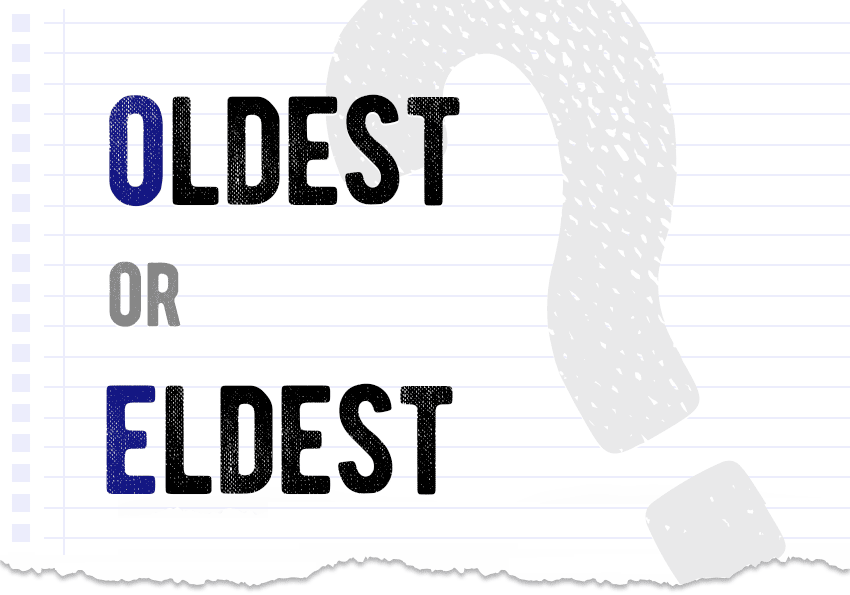Oldest or eldest – which one is correct?
Oldest or eldest? First and foremost, it is vital to emphasize that both oldest and eldest exist and are used in the English language. Even though the word oldest might seem more familiar, oldest and eldest have the same roots. What makes them different then? Let’s find out!

Oldest and eldest– where do they come from?
Although the word oldest and its comparative form older are more common, eldest and elder were used in Old English. They stem from the word eldra, denoting an older person or someone of a higher rank or seniority. As a result of multiple linguistic changes, it evolved into eld and only then old came into existence.
Oldest or eldest – what’s the difference?
Although only a letter distinguishes oldest from eldest, there is a slight difference in their meanings. Both words stem from the adjective old, which has a broad scope as it refers to knowing something or someone for a long time and being of a particular age. It might be also a synonym of the word former. Thus, the superlative oldest covers all that meanings. Eldest, on the other hand, is used especially within a family topic. Moreover, while both oldest and eldest may appear as adjectives and nouns, the latter always appears before a noun, never ends a sentence and cannot be used in constructions using than.
Examples of oldest and eldest in sentences
Britain’s oldest man has revealed the secret behind his long life as he celebrated his 110th birthday.
Saman Javed, UK INDEPENDENT
According to Statista, the Magna Carta, which was written in the year 1215, is debatably the oldest constitution still in place.
Jacob Livesay, USA TODAY
A handful of Londoners in some of the capital’s busiest districts unwittingly agreed to give up their eldest child, during an experiment exploring the dangers of public Wi-Fi use.
Tom Fox-Brewster, The Guardian
The eldest daughter told the court the ordeal had damaged her relationship with other male family members.
Felicity Dear, The New Zealand Herald


